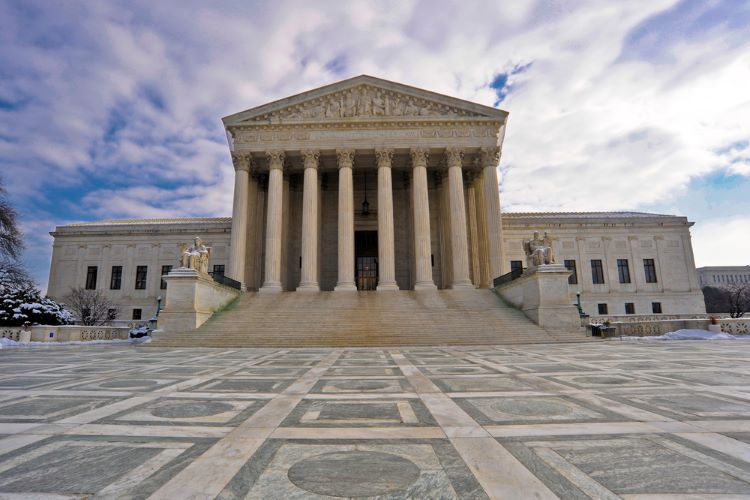Supreme Court Finds No Automatic Right to Counsel in Child Support Contempt Proceedings
The U.S. Supreme Court has found no automatic right to counsel for indigent civil defendants facing jail time, though it ruled on behalf of a father who served a year in prison for failing to pay child support.
The father, Michael Turner, was deprived of his 14th Amendment right to due process, the Supreme Court ruled in a 5-4 decision.
Free lawyers aren’t required in such situations, but states must have procedural safeguards in place to help determine whether the parent is able to comply with the support order, according to the majority opinion (PDF) by Justice Stephen G. Breyer.
Turner had told the trial judge who sentenced him to prison that he was unable to pay because “dope had a hold to me” until he broke his back and was laid up for two months. “And, now I’m off the dope and everything,” he told the court. “I just hope that you give me a chance.”
The judge sentenced Turner to a year in jail without making an express finding about his ability to pay. Turner’s appeal, brought with the help of a pro bono lawyer, argued he had the right to counsel at his contempt hearing.
Breyer’s opinion found that Turner did not get due process in his case, but said a lawyer was not an automatic requirement.
The 14th Amendment’s due process clause allows a state to provide fewer procedural protections to civil contempt defendants than in a criminal case, which is governed by the Sixth Amendment, Breyer said. He noted that both parties in a child support case are often unrepresented by lawyers, and providing a lawyer to just the noncustodial parent “could create an asymmetry of representation” altering significantly the nature of the proceeding.
He also noted the argument of the Solicitor General that alternate procedural safeguards can help reduce the risk of wrongful incarceration. They include: notice that ability to pay is a critical issue, the use of a form to elicit financial information, an opportunity for the defendant to answer questions about his financial status, and an express finding by the court on ability to pay.
Breyer said his opinion does not address a situation where child support is owed to the state, possibly as reimbursement of welfare payments to the parent with custody. Nor does the opinion address the due-process requirement for counsel in a particularly complex case.
Four dissenting justices agreed there is no right to appointed counsel for indigent defendants facing incarceration in civil contempt proceedings. They would not have reached the issue of the need for alternative procedural safeguards.
The ABA had argued in an amicus brief that poor people should have the right to a lawyer in civil contempt proceedings carrying a threat of jail time. The case is Turner v. Rogers.



